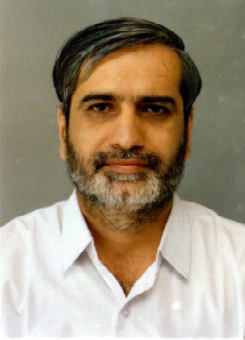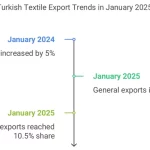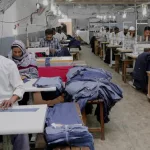 Finally, the EU has granted Pakistan the Generalised Scheme of Preferences (GSP) Plus status from January 1, 2014 for four years till 2017. The EU is Pakistan’s largest trading partner. In 2012 total EU-Pakistan trade amounted to EURO 8.2 billion. GSP+ will reduce tariffs to zero on over 90 per cent of all product categories being exported by Pakistan to the EU. The newly acquired status would also enable Pakistan to compete with those of regional rivals like Bangladesh and Sri Lanka, which already have duty-free access to the EU market. All Pakistan Textile Mills Association (APTMA) has expressed the hope to double the textile exports to $26bn in four years. The association has projected the textile exports to rise by 3pc above the target of $14.2bn for the current fiscal to $14.6bn and by 5pc to $16.3bn during the next financial year.
Finally, the EU has granted Pakistan the Generalised Scheme of Preferences (GSP) Plus status from January 1, 2014 for four years till 2017. The EU is Pakistan’s largest trading partner. In 2012 total EU-Pakistan trade amounted to EURO 8.2 billion. GSP+ will reduce tariffs to zero on over 90 per cent of all product categories being exported by Pakistan to the EU. The newly acquired status would also enable Pakistan to compete with those of regional rivals like Bangladesh and Sri Lanka, which already have duty-free access to the EU market. All Pakistan Textile Mills Association (APTMA) has expressed the hope to double the textile exports to $26bn in four years. The association has projected the textile exports to rise by 3pc above the target of $14.2bn for the current fiscal to $14.6bn and by 5pc to $16.3bn during the next financial year.
The European Commission’s preliminary assessment is that Pakistani exports, including textiles, and also other products such as leather would increase by Euro 574 million annually. The Pakistani textile industry estimates that exports to the EU of textiles alone under GSP+ will increase by $650 million in the first year. Textile exports of $13.1bn in the last fiscal year were 53pc of the country’s total exports of $24.6bn. The EU imported almost 27-30pc of Pakistan’s total exports during the period. Pakistan’s textile and clothing exports to the EU currently constitute over half of the country’s total exports to the bloc worth $9.5 billion. Around a quarter of these imports are bed linen, table linen and toilet and kitchen linen.
The GSP allows industrialized countries to offer assistance like lower tariffs and duties to economically less developed ones for the promotion and enhancement of their export capabilities. The GSP+ system, put into action from 1st July 2005, allows for additional preferences like the full removal of tariffs and is an extension of the GSP. The GSP Plus is granted to those countries that ratify and implement international conventions relating to human and labour rights, environment and good governance. The EU has been closely watching Pakistan’s human rights record and also fiercely opposes the death penalty. In 2012, the EU and Pakistan adopted a five-year Engagement Plan and launched a Strategic Dialogue, covering a wide range of issues Pakistan must address effectively to qualify for the GSP+ status.
Last month, EURATEX – the European Apparel and Textile Confederation, Brussels – had expressed its disappointment and strongly opposed the EU Commission’s proposal allowing Pakistan to obtain a preferential treatment on the grounds that the country was NOT effectively respecting the necessary conditions by bindingly committing to ratify and implement 27 Conventions in the abovementioned areas.
Prime Minister Nawaz Sharif is upbeat with the EU’s decision. This is perhaps his government’s first major achievement after coming to power. Prime Minister congratulated the nation over the award of GSP-Plus status to Pakistan by the European Union. Pakistan’s textile sector is extremely cheerful because Pakistan’s textile and clothing exports to the EU currently constitute over half of the country’s total exports to the bloc worth $9.5 billion.
The GSP+ regime calls for Pakistan to fully implement its commitments on human rights, good governance, labour and environmental standards. The Government at both federal and provincial level is primarily responsible for following up these obligations. However, business community will be required to play a significant role by ensuring labour rights and standards, including employing more women in the work place and making sure that there is no exploitation of child labour, and improving human rights etc.



